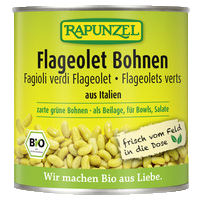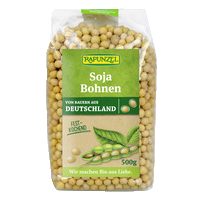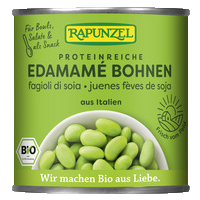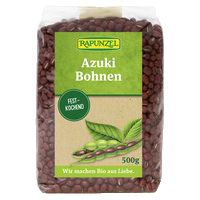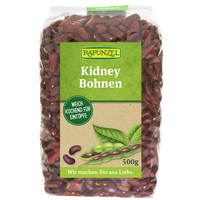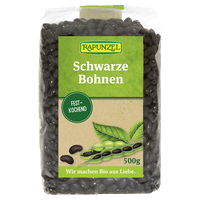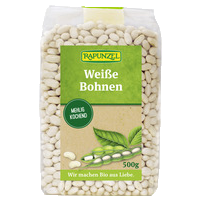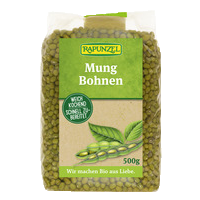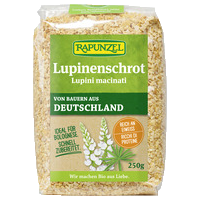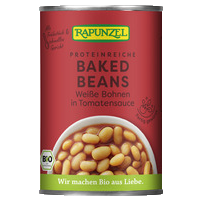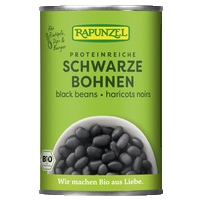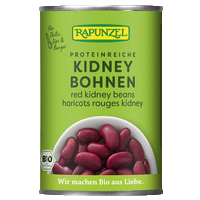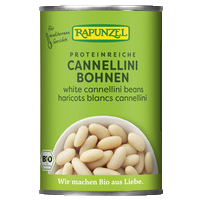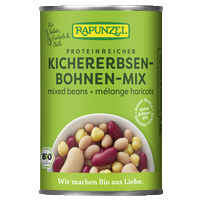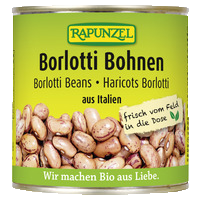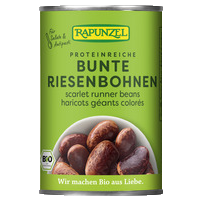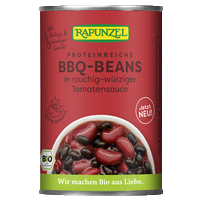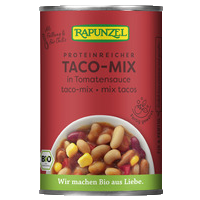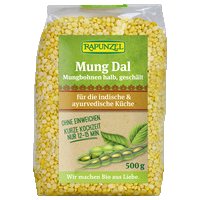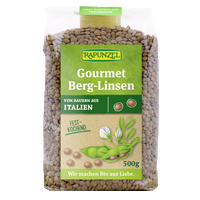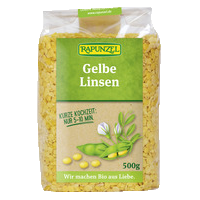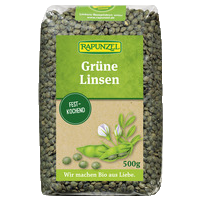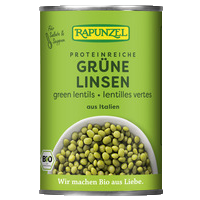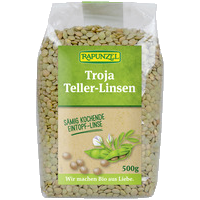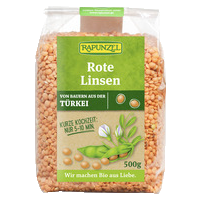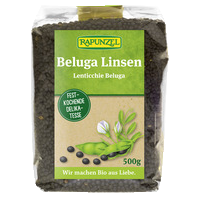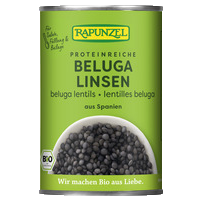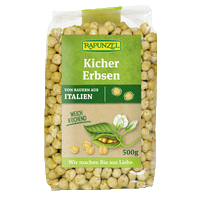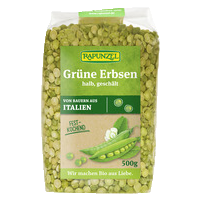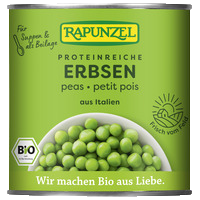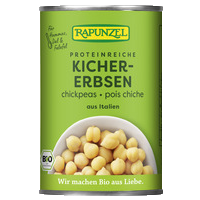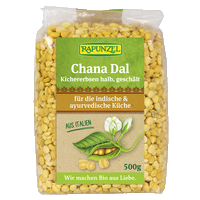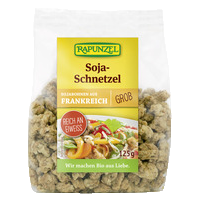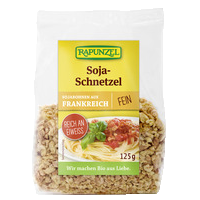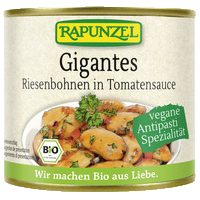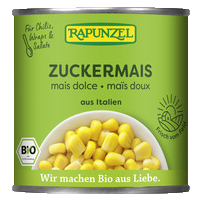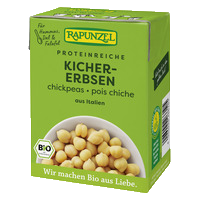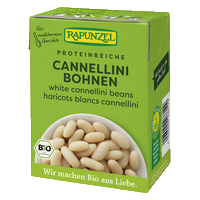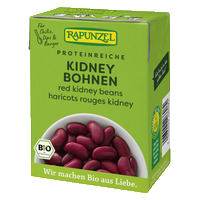Product overview
Legumes that were once considered "poor people's food" are very trendy once again. The times of boring stews are over: peas, lentils and beans have re-entered our modern cuisines with many extraordinary, regional as well as Oriental or Asian recipes.
Legumes are valuable sources of protein, rich in easy digestible starch, dietary fibers, minerals such as potassium, magnesium, and iron as well as B vitamins. For that reason they are indispensable for the vegetarian and vegan kitchen. Especially their high protein content - legumes have the highest protein concentration of all vegetables - makes legumes an ideal alternative to meat.
Legumes are valuable sources of protein, rich in easy digestible starch, dietary fibers, minerals such as potassium, magnesium, and iron as well as B vitamins. For that reason they are indispensable for the vegetarian and vegan kitchen. Especially their high protein content - legumes have the highest protein concentration of all vegetables - makes legumes an ideal alternative to meat.
In combination with cereals such as rice, corn or millet, legumes can substitute animal protein very well. Eating legumes in combination with cereals creates a high biological value, because the amino acid composition of these foods has positive effects for the protein build-up of our bodies.
Beans
Preserves
Frequently asked questions about legumes
What are red lentils?
Red lentils are made from lentils with brown to purple colored skin that are cultivated for the most part in Turkey and in India. Upon peeling, the bright orange-red core can be seen. Next, the peeled lentils are sprayed with some organic sunflower oil and polished in order to get a shiny appearance. Since the lentils have already been peeled, they can be cooked quickly without additional soaking.
Should I pour off the soaking water?
We recommend to discharge the soaking water and not to use it for cooking. The soaking water may contain dissolved dust particles and saponins that enhance foam formation during the cooking process. The legumes are also better digestible if you discharge the soaking water as indigestive substances are dissolved in the soaking water. The nutitional value of the soaking water is negligible. Legumes lose only few nutrients even when they are cooked for a prolonged time.
Which legumes are suitable for a raw food diet?
Note: all legumes and beans should be soaked and cooked before they are eaten!
Why are there black dots in cereals, legumes or oilseeds?
The presence of foreign seeds cannot be fully excluded for organic cereal products despite an intense work effort during the growth phase and thorough cleaning measures; products with optical deviations can also not be totally avoided.
The color of a grain or a seed kernel in cereals, legumes and oilseeds may vary from one harvest to the next due to many different factors such as soil type, climate and weather. Since we cooperate with many small peasant farmers in different growing regions around the world, the produce is exposed to a variety of conditions that may also result in natural color variations. Extreme weather conditions may result in strong optical changes; affected grain kernels and seeds are very difficult to separate at justifiable economic costs. Since we value a long-term, economic cooperation with our small peasant farmers we also purchase their yield in difficult years and try to process the products as best as possible.
Organic agriculture uses no herbicides. Therefore, weed seeds that have similar weights or sizes as grain kernels or seeds are very difficult to sort out.
Naturally, such products have to undergo very intense quality control checks and are only marketed if the problem is purely an optical problem and there are no other restrictions with respect to taste or nutritional quality.
We constantly try to improve our mechanical cleaning systems. However, due to physical limitations (an amaranth kernel has a size of only 0.5 mm) this is very difficult at times.
The color of a grain or a seed kernel in cereals, legumes and oilseeds may vary from one harvest to the next due to many different factors such as soil type, climate and weather. Since we cooperate with many small peasant farmers in different growing regions around the world, the produce is exposed to a variety of conditions that may also result in natural color variations. Extreme weather conditions may result in strong optical changes; affected grain kernels and seeds are very difficult to separate at justifiable economic costs. Since we value a long-term, economic cooperation with our small peasant farmers we also purchase their yield in difficult years and try to process the products as best as possible.
Organic agriculture uses no herbicides. Therefore, weed seeds that have similar weights or sizes as grain kernels or seeds are very difficult to sort out.
Naturally, such products have to undergo very intense quality control checks and are only marketed if the problem is purely an optical problem and there are no other restrictions with respect to taste or nutritional quality.
We constantly try to improve our mechanical cleaning systems. However, due to physical limitations (an amaranth kernel has a size of only 0.5 mm) this is very difficult at times.

